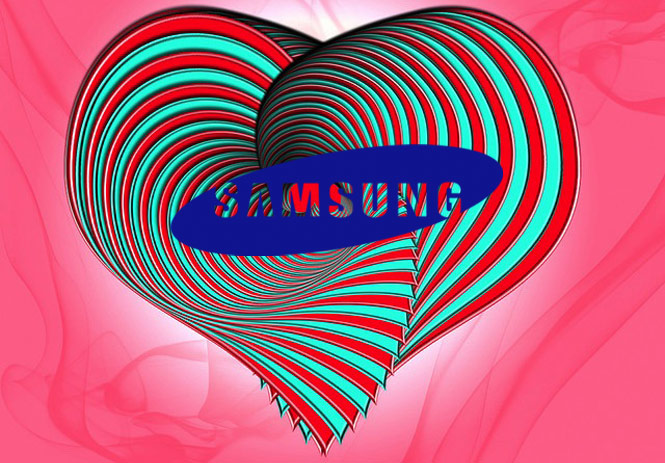
But no one has said what occurred to me right after reading Robert Scoble’s contention that Samsung copying Apple was a cheap way to get to the top of the mobile industry. So I have to write it myself.
[aditude-amp id="flyingcarpet" targeting='{"env":"staging","page_type":"article","post_id":523243,"post_type":"story","post_chan":"none","tags":null,"ai":false,"category":"none","all_categories":"business,dev,mobile,","session":"C"}']Here it is.
Samsung’s billion-dollar fine, which could go as high as $3 billion, is a great, excellent, and wonderful thing for the entire smartphone industry. And it’s an awesome thing for you and me, smartphone users. Yeah, really.
AI Weekly
The must-read newsletter for AI and Big Data industry written by Khari Johnson, Kyle Wiggers, and Seth Colaner.
Included with VentureBeat Insider and VentureBeat VIP memberships.
Although I agree, it probably sucks for Samsung.
Before you come after me with pitchforks and torches, here are a couple of caveats. I hate software patents, too. I think they cost the U.S economy way too much. And even though Samsung probably did copy Apple, I think the better way to handle this was out of the court system.
But take a look at the state of the smartphone user interface today:
Essentially, it’s a two-horse race: Android versus iPhone. Google and Apple together combine for 81.5 percent of the smartphone market. Add 6 percent for BlackBerry, a few points for Nokia platforms that are going away, and you’ve got almost 90 percent of everything that matters in phones.
The problem?
That’s almost 90 percent of basic sameness and conformity, which can be described at a high level as:
[aditude-amp id="medium1" targeting='{"env":"staging","page_type":"article","post_id":523243,"post_type":"story","post_chan":"none","tags":null,"ai":false,"category":"none","all_categories":"business,dev,mobile,","session":"C"}']
- full-screen devices with soft keyboards
- with apps
- that show up as square icons
- on a grid
- which can be stacked into folders
- and come from app stores
- with built-in, manufacturer-approved apps on a privileged bottom tray
- on a device with some sort of slide-to-unlock feature
- with a time display at the top, plus battery life, signal strength, and carrier information
- and a notification system
- and voice control
- and I could go on for a while …
Sure, Android and iOS do things a little differently. Sure, there are slightly different user interface conventions. And yes, iOS is maybe a little more polished, and Android is maybe a little more versatile. But basically, they’re similar.
An iOS user can pick up an Android device and get along just fine, and vice versa.
They might not be twins, but they are certainly siblings.
The problem with this is a distinct lack of innovation in qualitatively different kinds of user interfaces for mobile devices. Phones and tablets seem locked into a gridded, iconified user interface.
[aditude-amp id="medium2" targeting='{"env":"staging","page_type":"article","post_id":523243,"post_type":"story","post_chan":"none","tags":null,"ai":false,"category":"none","all_categories":"business,dev,mobile,","session":"C"}']
Was that inevitable? Are there no alternatives? Apple may have shown the way over the past few years, but is iPhone really all that different, on a user interface level, than parts of Windows Mobile 6?
(Don’t misunderstand: The user experience is vastly different, which is primarily why iPhone is a huge success and Windows Mobile sucked and croaked. But surely the user interface has common ancestry.)
So that’s why I’m hoping that this multi-billion-dollar fine for rounded rectangles and bouncing rubber-banded lists and slide-to-unlocks will stimulate Google and others in the mobile industry to truly think different. To come up with some almost unbelievable, unimaginable, incredible new ways to interact with information on a small mobile device.
Most will probably suck. That’s life as an inventor: You fail more than you succeed. But the outcome would be creativity and innovation, and maybe some qualitatively better user interfaces — and experiences — on mobile devices.
[aditude-amp id="medium3" targeting='{"env":"staging","page_type":"article","post_id":523243,"post_type":"story","post_chan":"none","tags":null,"ai":false,"category":"none","all_categories":"business,dev,mobile,","session":"C"}']
Which brings me to Microsoft, of course.
Because Microsoft — supposedly noncreative, start-your-photocopiers-Redmond, copy-and-iterate Microsoft — is interesting, oddly, and fascinatingly the most differentiated and (arguably) innovative mobile operating system available today. Windows Phone is not a grid of siloed apps but an integrated tile view of events and information collected by the phone for the user’s convenience.
And Microsoft and Apple have a patent relationship, one which gives Microsoft free rein to innovate mobile in new directions while, doubtless incidentally, legitimizing Apple’s patents for battle against Redmond’s true enemy, Google.
The only fly in that ointment is that Windows Phone is a tiny blip on the market right now. It’s one step, and it’s probably due for some significant growth in 2013, but we need many more. We need Google, we need Intel, and we need other new innovators to step up and create something different, and possibly better.
[aditude-amp id="medium4" targeting='{"env":"staging","page_type":"article","post_id":523243,"post_type":"story","post_chan":"none","tags":null,"ai":false,"category":"none","all_categories":"business,dev,mobile,","session":"C"}']
So that’s why I’m hoping Samsung’s current pecuniary pain will lead to all of our collective future benefit.
Although I suppose that isn’t much comfort in Korea.
photo credit: ViaMoi via photo pin cc
VentureBeat's mission is to be a digital town square for technical decision-makers to gain knowledge about transformative enterprise technology and transact. Learn More